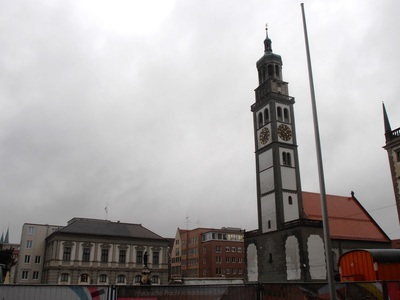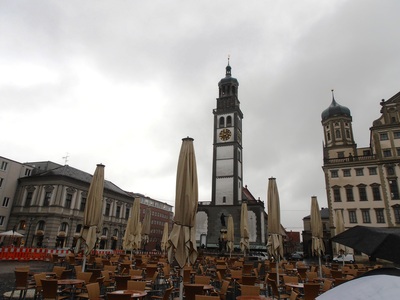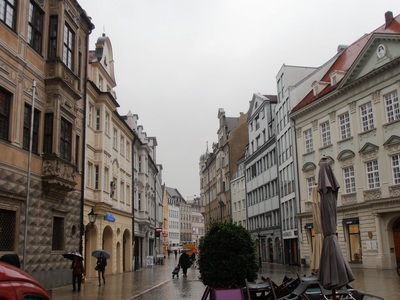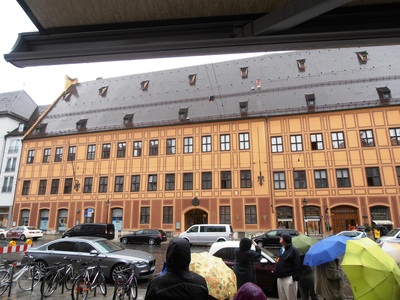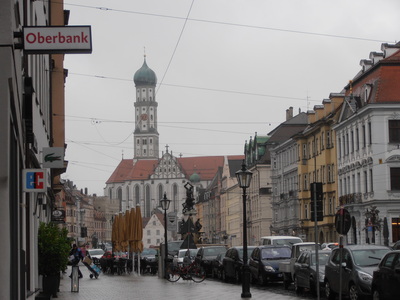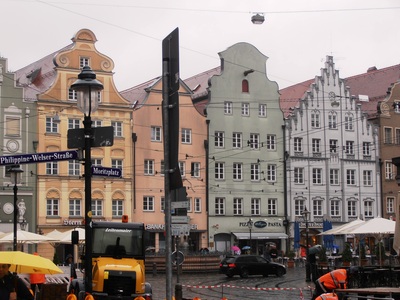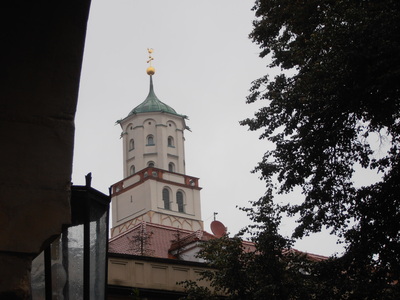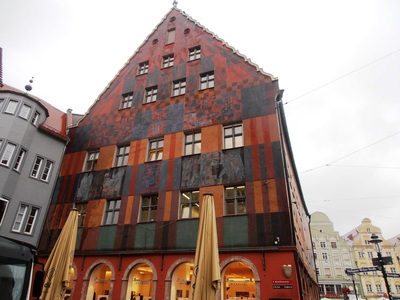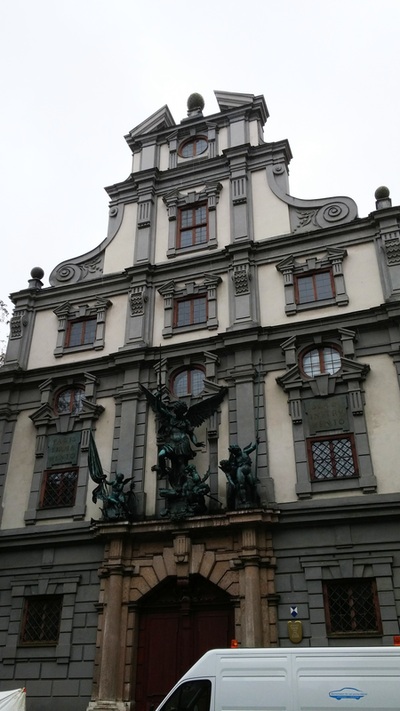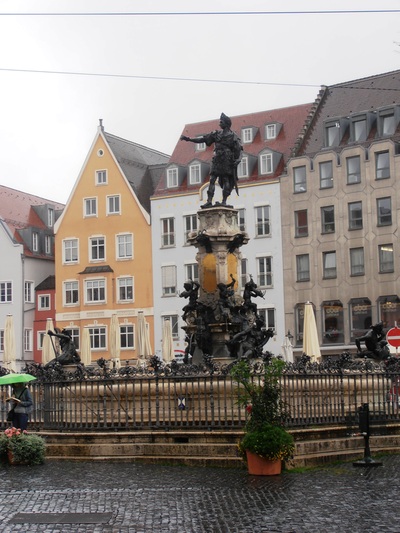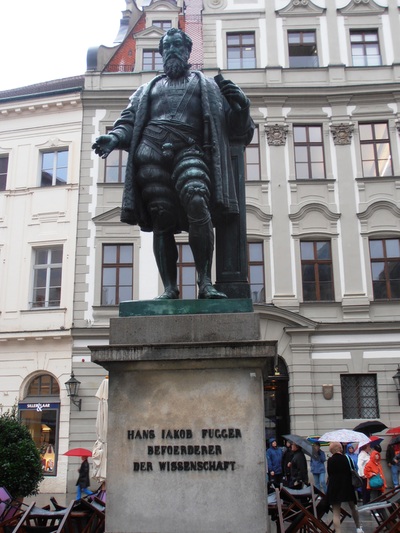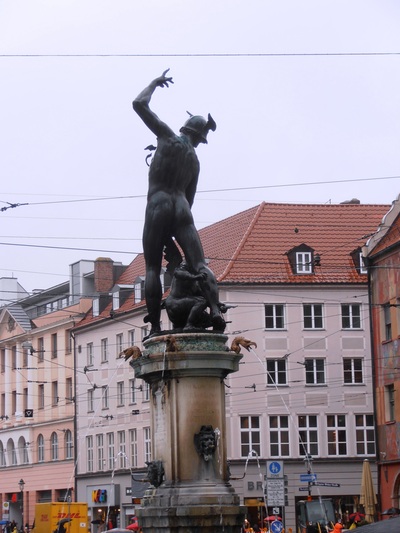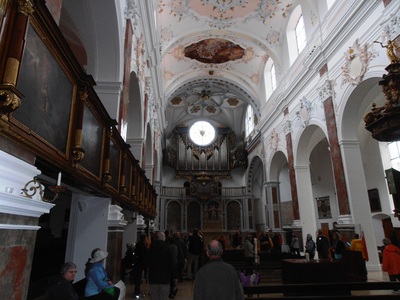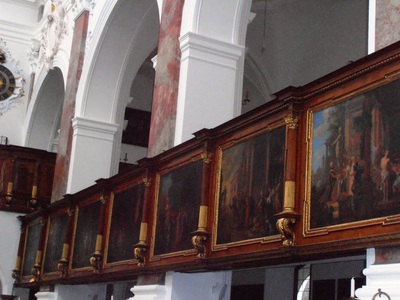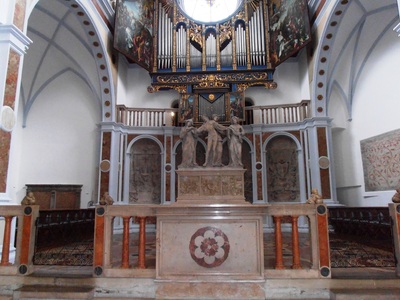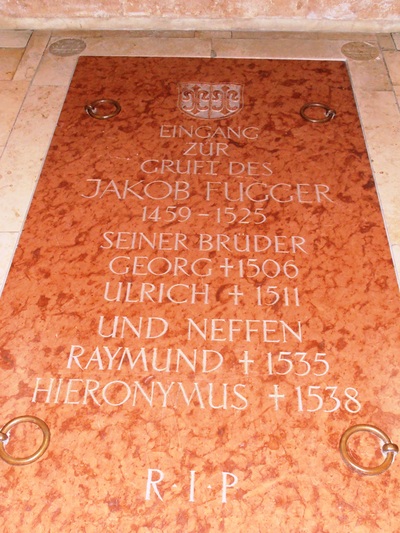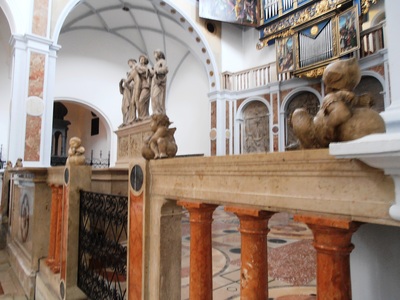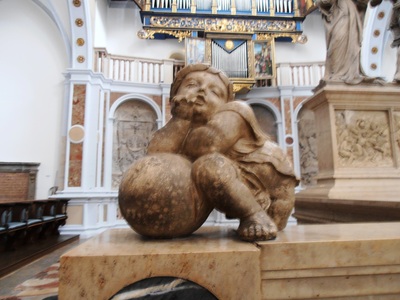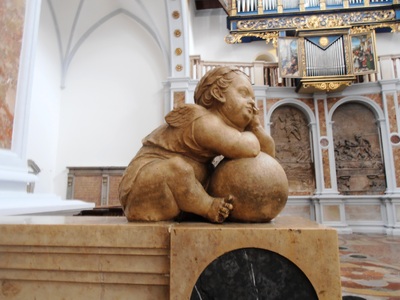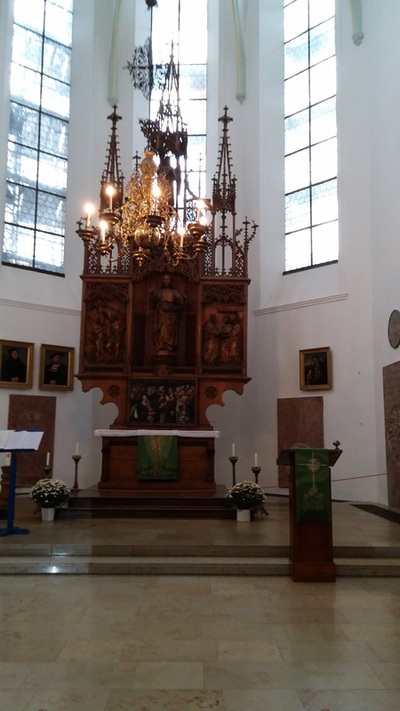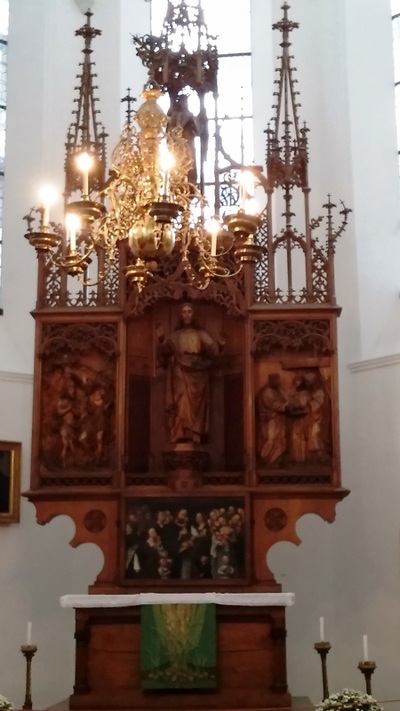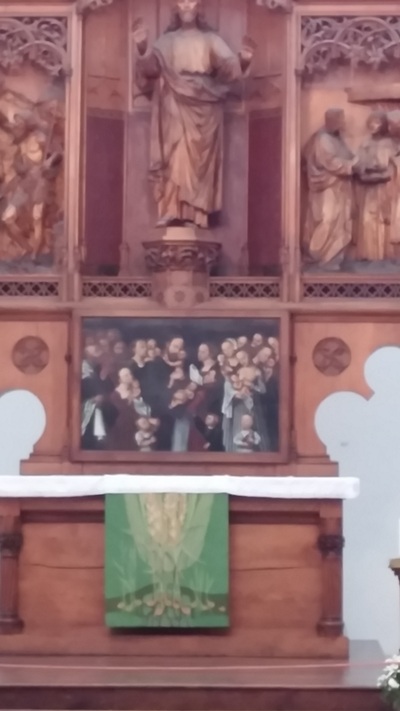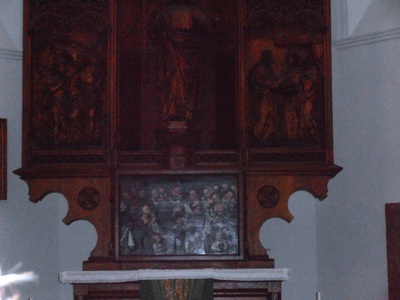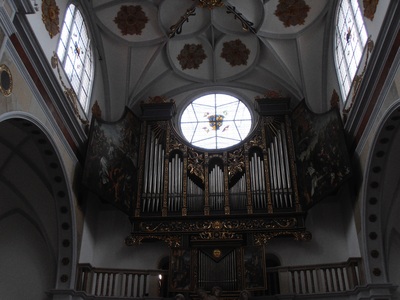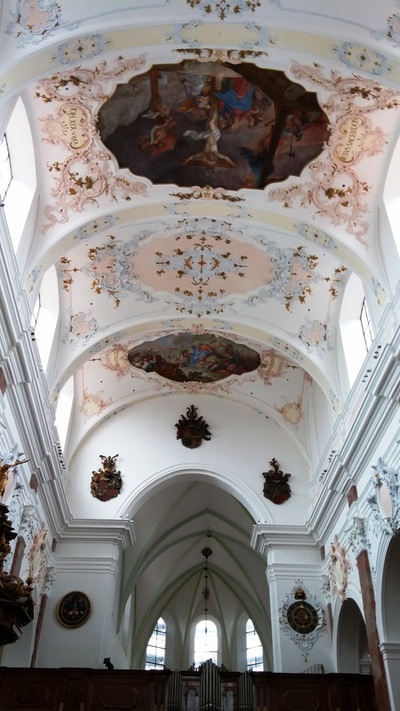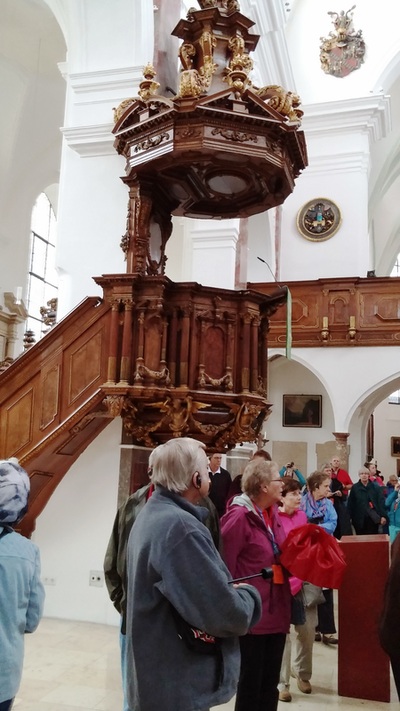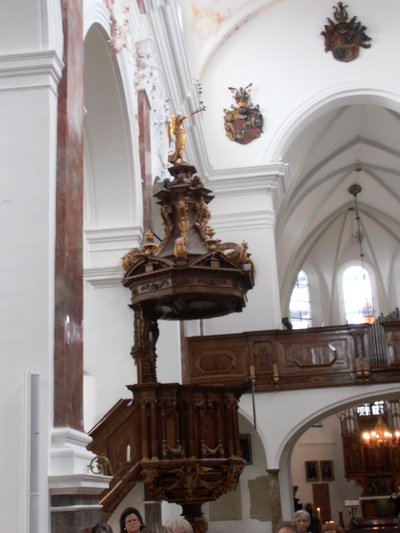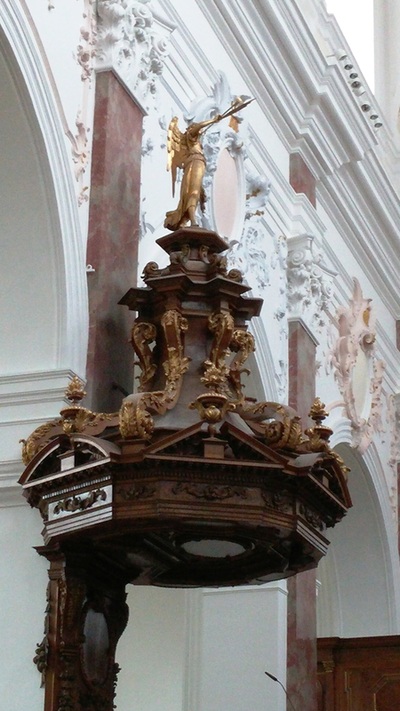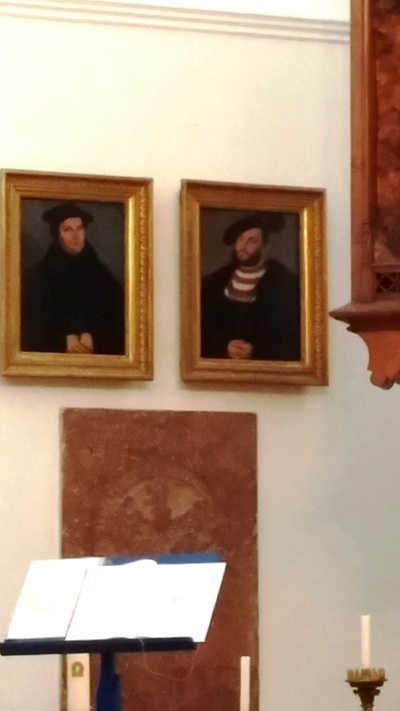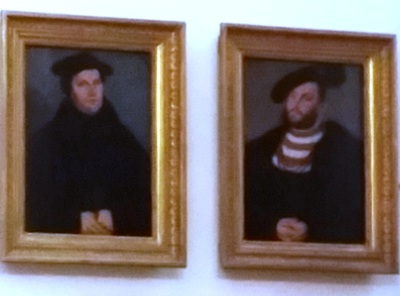Day 5: September 12, 2014
The morning started with loading the buses for the journey to Erfurt - our destination for the evening.
Along the way we stopped for a tour of Augsburg.
Augsburg is a city in the south-west of Bavaria, Germany.
Augsburg was the home of two patrician families that rose to great prominence internationally, replacing the Medicis as Europe's leading bankers, the Fugger and the Welser families.
Augsburg was the site where the Augsburg Confession was declared.
The Augsburg Confession, also known as the "Augustana" from its Latin name, Confessio Augustana, is the primary confession of faith of the Lutheran Church and one of the most important documents of the Lutheran Reformation. The Augsburg Confession was written in both German and Latin and was presented by a number of German rulers and free-cities at the Diet of Augsburg on 25 June 1530. The Holy Roman Emperor Charles V had called on the Princes and Free Territories in Germany to explain their religious convictions in an attempt to restore religious and political unity in the Holy Roman Empire and rally support against the Turkish invasion. It is the fourth document contained in the Lutheran Book of Concord.
Along the way we stopped for a tour of Augsburg.
Augsburg is a city in the south-west of Bavaria, Germany.
Augsburg was the home of two patrician families that rose to great prominence internationally, replacing the Medicis as Europe's leading bankers, the Fugger and the Welser families.
Augsburg was the site where the Augsburg Confession was declared.
The Augsburg Confession, also known as the "Augustana" from its Latin name, Confessio Augustana, is the primary confession of faith of the Lutheran Church and one of the most important documents of the Lutheran Reformation. The Augsburg Confession was written in both German and Latin and was presented by a number of German rulers and free-cities at the Diet of Augsburg on 25 June 1530. The Holy Roman Emperor Charles V had called on the Princes and Free Territories in Germany to explain their religious convictions in an attempt to restore religious and political unity in the Holy Roman Empire and rally support against the Turkish invasion. It is the fourth document contained in the Lutheran Book of Concord.



